Posted by Jeff Garrett on the Numismatic Guaranty Corporation Weekly Market Report …..
Regardless of whom you buy coins from, understanding the numismatic landscape will give you a better idea of how the hobby operates.
Anyone who collects coins, other than plucking them from circulation, buys them from someone. Many collectors may find their coins from various sources, while others rely on long-term relationships with one or two dealers. The world of rare coins is quite a varied landscape. For those unfamiliar with the hobby, the mention of a coin dealer probably brings to mind a small “hole in the wall” operation. Perhaps they have seen coins displayed at a flea market or in the corner of a hobby shop. Very few people who are not involved with numismatics have any idea of the size and scope of the hobby. As mentioned a few articles ago, national numismatic sales probably exceed a few billion dollars per year. Who does all of this business and what different kinds of operations are there in the numismatic field? This is most likely a question that very few ever consider. When buying rare coins, it is important to understand the different kinds of coin dealers and their respective operations. Collectors should consider whether they are sourcing their coins from the best place. The following is a brief description of the various coin operations I have observed over the last few decades.
Flea Market Dealer: This type of dealer sets up on the weekend with a few showcases. Most of the coins are inexpensive and probably uncertified. Flea market dealers have been around for decades and were the source of many of my early numismatic adventures. Very few flea market dealers are full-time operations, and numismatic knowledge maybe limited. Flea markets have also been the source of many counterfeit rare coins sold in recent years. Everyone loves a bargain, but we know how that usually works out!
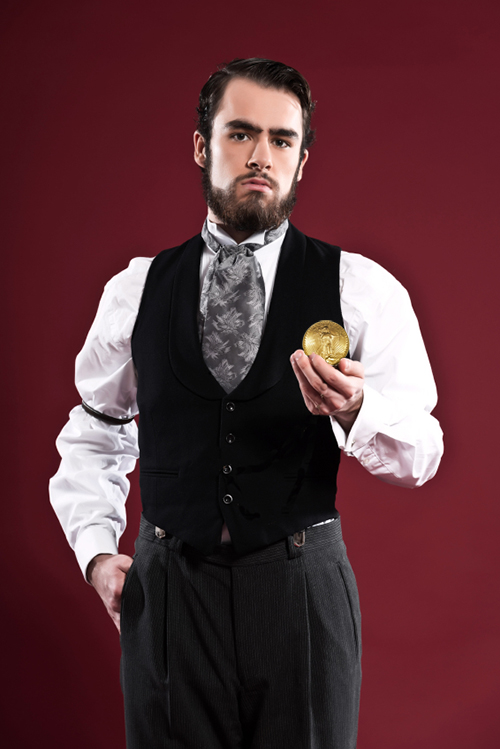 Vest-Pocket Dealer: These are small operators who maintain a few boxes of rare coins and frequent local and regional coin shows or coin club meetings. Again, most are not full-time. They specialize in going from table to table shopping their wares. They may buy coins from other small dealers and are mostly wholesale operations. Many rare coin dealers started their careers this way. The overhead is low, and it’s a great way to acquire the knowledge needed to pursue coins as a full-time job.
Vest-Pocket Dealer: These are small operators who maintain a few boxes of rare coins and frequent local and regional coin shows or coin club meetings. Again, most are not full-time. They specialize in going from table to table shopping their wares. They may buy coins from other small dealers and are mostly wholesale operations. Many rare coin dealers started their careers this way. The overhead is low, and it’s a great way to acquire the knowledge needed to pursue coins as a full-time job.
eBay Dealers: This is a relatively new phenomenon in numismatics. These are mostly small operators who list anywhere from a few to a few hundred coins per month on eBay or on other auction sites. Many larger dealers also utilize eBay, but a quick glance at the site gives you an idea of the material available in most cases. In recent years, eBay has been making an effort to improve the numismatic offerings. As I have stated many times, I recommend only buying coins from dealers who offer full returns if there is a problem. This advice applies to Internet auctions as well.
Small Coin Shops: Decades ago, there were many more coin shops around the country than there are today. This was before the Internet and at a time when bullion dominated the numismatic scene. There have been some survivors and most cities have at least one or two operations. Quite a few might fall into the “hole in the wall” description mentioned above. It would be almost impossible for a small coin shop to stay in business buying and selling rare coins alone. Most have scrap gold operations, jewelry sales, and coin supplies. Many are nothing more than buying stations, trying to purchase coins from the public.
Large Coin Shops: Over the decades, there have been some major coin shop operations around the country that have thrived. Most are in major cities and have a much more diversified offering. Many have very knowledgeable owners and staff that have worked with local collectors for years. If you are lucky enough to live in a city with a large coin operation you would be well-served to establish a relationship with the owners. They can be a great source of numismatic information and material. Large coin shops can also offer an interesting social aspect, as many collectors like to congregate there on weekends.
Mail Order Dealers: Anyone who has read a numismatic periodical has seen their ads, usually multi-page offerings. These dealers usually offer uncertified material, most of which has been optimistically graded. Over the years, I have seen quite a few collections that have been purchased in this manner. The collectors were more interested in price than quality. With third-party grading becoming ever more important, some players in this field have started offering more certified material.
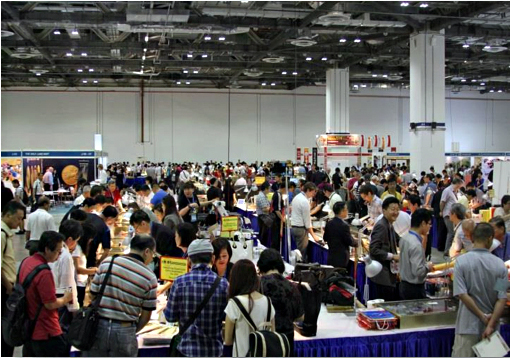 Coin Show Dealers: This category covers a large and varied group of rare coin dealers. Most have offices but conduct a large part of their business at coins shows around the country. Some are primarily wholesale dealers, and others cater to the retail crowd. There are probably 20 to 25 fairly major coin shows in the country each year. Most of the coin show dealers attend nearly all of them, myself included. Some of the sharpest numismatic minds in the industry can be found at major coin shows. These are dealers who make a living based on knowledge, and most have spent a lifetime trying to acquire as much as possible. Coin shows are also where many of the “specialists” in the numismatic industry operate. If you like large cents, a major coin show is a great event to attend. You will find quite a few dealers who have made a career dealing in copper coinage. The same can be said for silver dollars, gold coins, tokens, world coins, and many other specialties. Coin shows are a great place to meet and to establish a relationship with dealers handling the rare coins you collect. A bit of caution is advised, however. There are quite a few rare coin dealers who are there to buy and sell as many coins as quickly as possible. They only deal with other dealers and can come off as quite rude to collectors wandering by. Look for dealers with well-maintained booths, and avoid those with only a few coins scattered in their cases.
Coin Show Dealers: This category covers a large and varied group of rare coin dealers. Most have offices but conduct a large part of their business at coins shows around the country. Some are primarily wholesale dealers, and others cater to the retail crowd. There are probably 20 to 25 fairly major coin shows in the country each year. Most of the coin show dealers attend nearly all of them, myself included. Some of the sharpest numismatic minds in the industry can be found at major coin shows. These are dealers who make a living based on knowledge, and most have spent a lifetime trying to acquire as much as possible. Coin shows are also where many of the “specialists” in the numismatic industry operate. If you like large cents, a major coin show is a great event to attend. You will find quite a few dealers who have made a career dealing in copper coinage. The same can be said for silver dollars, gold coins, tokens, world coins, and many other specialties. Coin shows are a great place to meet and to establish a relationship with dealers handling the rare coins you collect. A bit of caution is advised, however. There are quite a few rare coin dealers who are there to buy and sell as many coins as quickly as possible. They only deal with other dealers and can come off as quite rude to collectors wandering by. Look for dealers with well-maintained booths, and avoid those with only a few coins scattered in their cases.
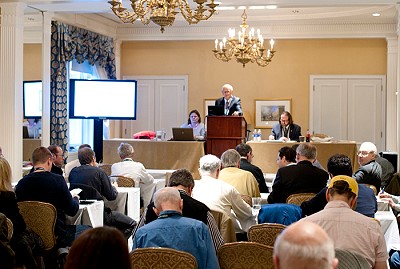 Auction Houses: Auction houses have become an integral part of the numismatic landscape. A few decades ago, an auction house might have had sales approaching $10 million per year. Today, that would be a single average sale without a major collection. For the last few years, over $500 million worth of rare coins are sold at auction on an annual basis. Many of the above mentioned coin show dealers have been struggling to source coins with so much going to auction. Auctions are a great place to see a large variety of rare coins for sale. There are a few major players in the rare coin auction business and most offer wonderfully produced catalogues. Quite a few auctions are conducted at major coin shows, and these are excellent opportunities to see the bourse floor and auction in one place.
Auction Houses: Auction houses have become an integral part of the numismatic landscape. A few decades ago, an auction house might have had sales approaching $10 million per year. Today, that would be a single average sale without a major collection. For the last few years, over $500 million worth of rare coins are sold at auction on an annual basis. Many of the above mentioned coin show dealers have been struggling to source coins with so much going to auction. Auctions are a great place to see a large variety of rare coins for sale. There are a few major players in the rare coin auction business and most offer wonderfully produced catalogues. Quite a few auctions are conducted at major coin shows, and these are excellent opportunities to see the bourse floor and auction in one place.
Cable TV Dealers: Anyone who channel-surfs has seen these shows. Quite a few have very successful rare coin operations. Most of their offerings focus on modern coinage and other coins that can be purchased in quantity, such as silver dollars. These shows are an excellent recruiting ground for new collectors. Hundreds of thousands of collectors have been introduced to numismatics by cable shopping channels. Many later become more advanced in their numismatic pursuits and are a great driver of growth for the hobby.
Mega Dealers: These are some of the largest numismatic operations in the country with hundreds of employees. Some have offices that could better be described as campuses. Most of these large dealerships focus on mass market retail. Companies such as Littleton spend millions each year advertising in national publications. Others choose cable or the Internet to shop their wares. These are well-diversified and shrewdly run businesses. Some offer everything from $5 to $1,000,000 coins and everything in between. These companies would stun most collectors and non-collectors with their size; they are quite the opposite of the “hole in the walls” mentioned above. The mega dealers are also a great driver of new blood for numismatics. They bring untold thousands of new collectors into the hobby each year.
This list only gives a rudimentary examination of the many types of rare coin dealers in the country. I’m sure I may have left out a few different kinds of dealers. Regardless of whom you buy coins from, understanding the numismatic landscape will give you a better idea of how the hobby operates. As mentioned several times, establishing a relationship with someone knowledgeable will be one of your best investments, regardless of what kind of dealer they are.
About Jeff Garrett
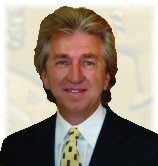 Jeff Garrett, founder of Mid-American Rare Coin Galleries, is considered one of the nation’s top experts in U.S. coinage — and knowledge lies at the foundation of Jeff’s numismatic career. With more than 35 years of experience, he is one of the top experts in numismatics. The “experts’ expert,” Jeff has personally bought and sold nearly every U.S. coin ever issued. Not a day goes by that someone doesn’t call on Jeff Garrett for numismatic advice. This includes many of the nation’s largest coin dealers, publishers, museums and institutions.
Jeff Garrett, founder of Mid-American Rare Coin Galleries, is considered one of the nation’s top experts in U.S. coinage — and knowledge lies at the foundation of Jeff’s numismatic career. With more than 35 years of experience, he is one of the top experts in numismatics. The “experts’ expert,” Jeff has personally bought and sold nearly every U.S. coin ever issued. Not a day goes by that someone doesn’t call on Jeff Garrett for numismatic advice. This includes many of the nation’s largest coin dealers, publishers, museums and institutions.
In addition to owning and operating Mid-American Rare Coin Galleries, Jeff Garrett is a major shareholder in Sarasota Rare Coin Galleries. His combined annual sales in rare coins and precious metals — between Mid-American in Kentucky and Sarasota Rare Coin Galleries in Florida — total more than $25 million.
Jeff Garrett has authored many of today’s most popular numismatic books, including Encyclopedia of U.S. Gold Coins 1795–1933: Circulating, Proof, Commemorative, and Pattern Issues; 100 Greatest U.S. Coins;and United States Coinage: A Study By Type. He is also the price editor for The Official Redbook: A Guide Book of United States Coins.
Jeff was also one of the original coin graders for the Professional Coin Grading Service (PCGS). He is today considered one of the country’s best coin graders and was the winner of the 2005 PCGS World Series of Grading. Today, he serves as a consultant to Numismatic Guaranty Corporation (NGC), the world’s largest coin grading company.
Jeff plays an important role at the Smithsonian Institution’s National Numismatic Department and serves as consultant to the museum on funding, exhibits, conservation and research. Thanks to the efforts of Jeff and many others, rare U.S. coins are once again on exhibit at the Smithsonian Institution’s Museum of American History. We urge everyone who visits Washington, D.C., to view this fabulous display.
Jeff has been a member of the prestigious Professional Numismatic Guild (PNG) since 1982 and has recently served as president of the organization. In 2009 and 2011, Jeff ran successfully for a seat on the Board of Governors for the American Numismatic Association (ANA), the leading numismatic club in the world. He plans to run for ANA vice president in 2013.


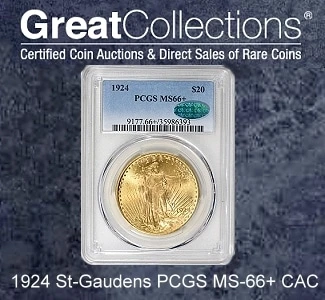
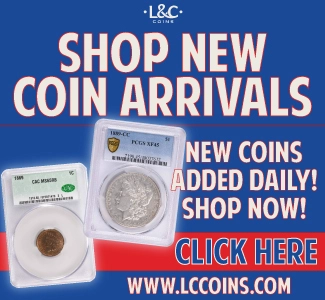
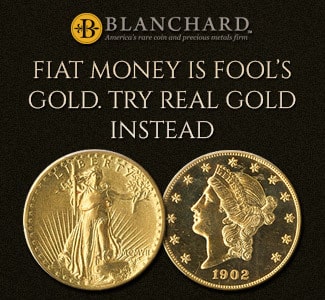
This is very one-sided. It is written by a guy who owns or part owns very large coin stores, and as such puts a spin on the fact that larger is better!
He attacks the small coin stores. I live in a city where the writer has a large coin store. 1883 CC Morgan Dollar PCGS Small coin store selling one for $225. The same coin at his gallery $295. The small coin store is currently buying 90% scrap silver for 15 times face. His gallery 13 times face.
So do the Math, plus the small coin stores are local guys who have been dealing in coins for decades and most of them coin collectors themselves.
Today Jeff has big pockets and using his power behind PCGS & NGC to push out the smaller guys.
You can still get good deals at Flea Markets, and the local coin stores do offer better knowledge and value for money, a few large coin Gallerys like the ones Jeff owns have a great showroom full of millions of dollars of coins, they also have good knowledge but have huge overheads and many staff to run such an operation without the absent owners.
If you can afford to run a huge coin store from a distance you are making a huge profit. If you are a local guy buying and selling locally you can offer customers a personal service and better value for money.
If Coin week is going to publish such articles please keep the spin out of it, you have no idea how many small coin dealers you upset with this crap you wrote.
One would have to agree with Jonathon, I have had the pleasure of meeting Jeff, but his comments here show just far away he has gone from the real ‘grass roots’ of coin dealing.
Jeff I doubt you remember me, as I am just a small coin shop dealer, or ‘Hole in the Wall guy’ as you call us. Yes we can make a profit, we work in the store ourselves as you once did.
I can remember you over 20 years ago, when you worked the floor of a coin show buying and selling, we had a good time and many great coins passed through our hands. Take your tie off and get back on the coin show floor and meet with the coin dealers again.
Your remarks are very hurtful, your store prices are clearly out of reach for the next generation of coin collectors. You once told me yourself, never forget the little guys, it’s a shame you forgot that.
Chris
I don’t want to make this another bash Jeff post, but perhaps such responses ring true. I’m just a collector, but I’ve seen Jeff at the long beach show. I recognized him from ads he ran in the past, and I also recognized some arrogance. All I noticed at that show was a stack of high grade, common mercury dimes. A few people were buying them, so I tried to ask how much they were. He never addressed me.. So I kept walking. Anyways, I hate the big business side to coin collecting. It’s quite boring and feels un genuine. Jeff and other high rollers should get out there in the flea markets and small shops and make some good finds.
Not speaking for Jeff, but you have to realize that these dealers are on the road for more than half the year. It’s possible he didn’t hear you over the noise of the show, or perhaps you caught him when he was tired. All of my run ins with Jeff have been pleasant. He’s typically very friendly.
I have been in business for 49 years at my small store in SC. I have as much knowledge as anyone and love all coin collectors. The rich who want high grade big dollar coins and the small guy trying to get a full Wheat cent collection.
I am finding it hard to control my thoughts and temper when I read Jeff’s ignorant post. The swipe at calling us ‘Hole in the Wall’ is vicious and just stuck up.
While I accept some stores do better than others and Jeff has done very well for himself, I will say well done. But just because he has two massive galleries selling coins at extremely high prices, how dare he attack us in Coin Week and twist it to make every small coin dealer in the country look like we are nothing better than the ‘We Buy Gold’ stores that popped up.
I am ashamed that Coinweek allowed him to write such an article. Jeff Garrett, get off your high and mighty horse and remember where you came from sir. many of us are still treading the boards, living in motels as we go to shows around the country and have small honest coin stores, were we serve new and old collectors. Your attitude towards your peers shows how much respect you now have for the industry.
Ronald:
Thank you for your email and your perspective. It is obvious that Jeff “struck a nerve” with his comments, but I just wanted to address one point you brought up, about CoinWeek “allowing him to write such an article”.
Coinweek has over 35 contributors, and we have very strict rules about what is acceptable content from our writers and from reader comments as well.
We do not allow ad hominem attacks on anybody, nor do we provide a platform for non factual content to be disseminated from our site.
However we are very willing, and in fact support dealers, collectors and readers who express their opinions and reactions to news articles, numismatic events and virtually any numismatic related topic. That includes posting up content and comments that we may not personally agree with, but which are nonetheless a particular persons point of view.
CoinWeek does not pre-censure any of our writers. We edit articles for content, only if there are factual problems, and generally these are just returned to the author for additional research or changes.
Our goal is to provide as wide a spectrum of opinions and commentary as possible, in the belief that more discussion and a full expression of all opinions will generally lead to the most reasoned conclusion, and ultimately the truth.
We encourage all readers to challenge any author or article that appears on CoinWeek if you disagree with the tone, content or opinions expressed.
Numismatics is a large tent, and there is room enough for all.
Best Regards
Scott Purvis – Editor
Hi Scott
Thank you sir for your comments.
I think what struck a nerve was Jeff’s comment “It would be almost impossible for a small coin shop to stay in business buying and selling rare coins alone. Many are nothing more than buying stations,”
That is cruel and quite insulting to many of us who have been dealing in coins longer or just as long as Jeff. To see it written by some who was once respected was hurtful.
Maybe he did not mean to hurt us, I am surprised he has not made a comment back clearing up the issue.
Anyway lets move on.
Ron
I just come across this post. Boy oh boy who does Jeff Garrett think he is?
As a small coin store owner in NV, I am stunned he could be so high and mighty. How dare he attack fellow coin store owners and dealers, just because we are not as big as his large galleries.
We have just as many rare coins and deal with collectors as young as 8 to as old as 95. We find the rare coin that eventually end up in his galleries.
I will never read anything from this guy again. I am flying down to the FUN show in Orlando next week. If Jeff dares to step foot in the place, I am sure he will be verbally attacked by many of the little local coin guys including myself.
We have a place for large coin stores and small stores. I have read the return comments from Coin Week and don’t blame them. The fact he has not come back himself and apologized for the wording he used show his utter contempt of fellow coin dealers.
Don Peterson. Dons Coin Store